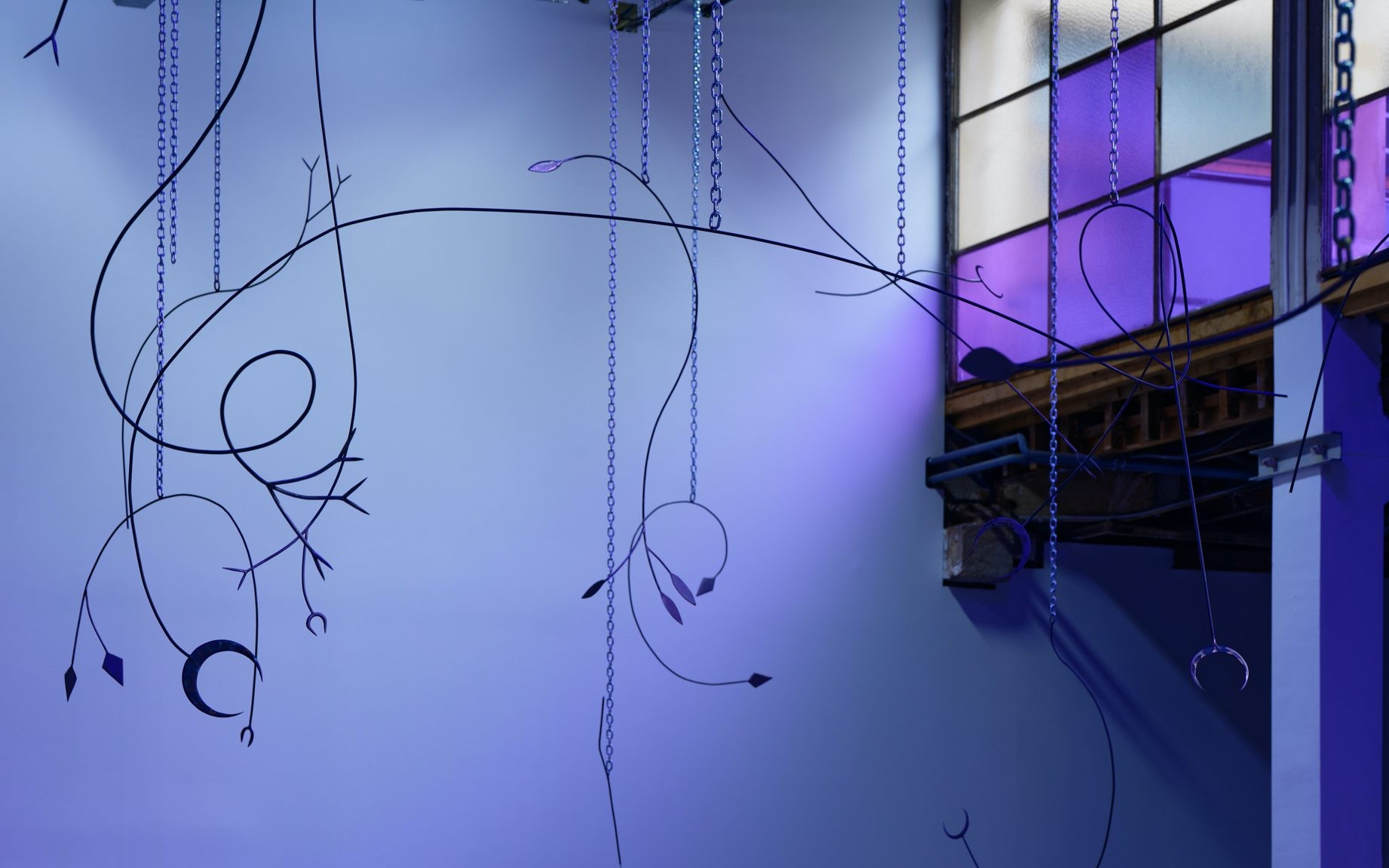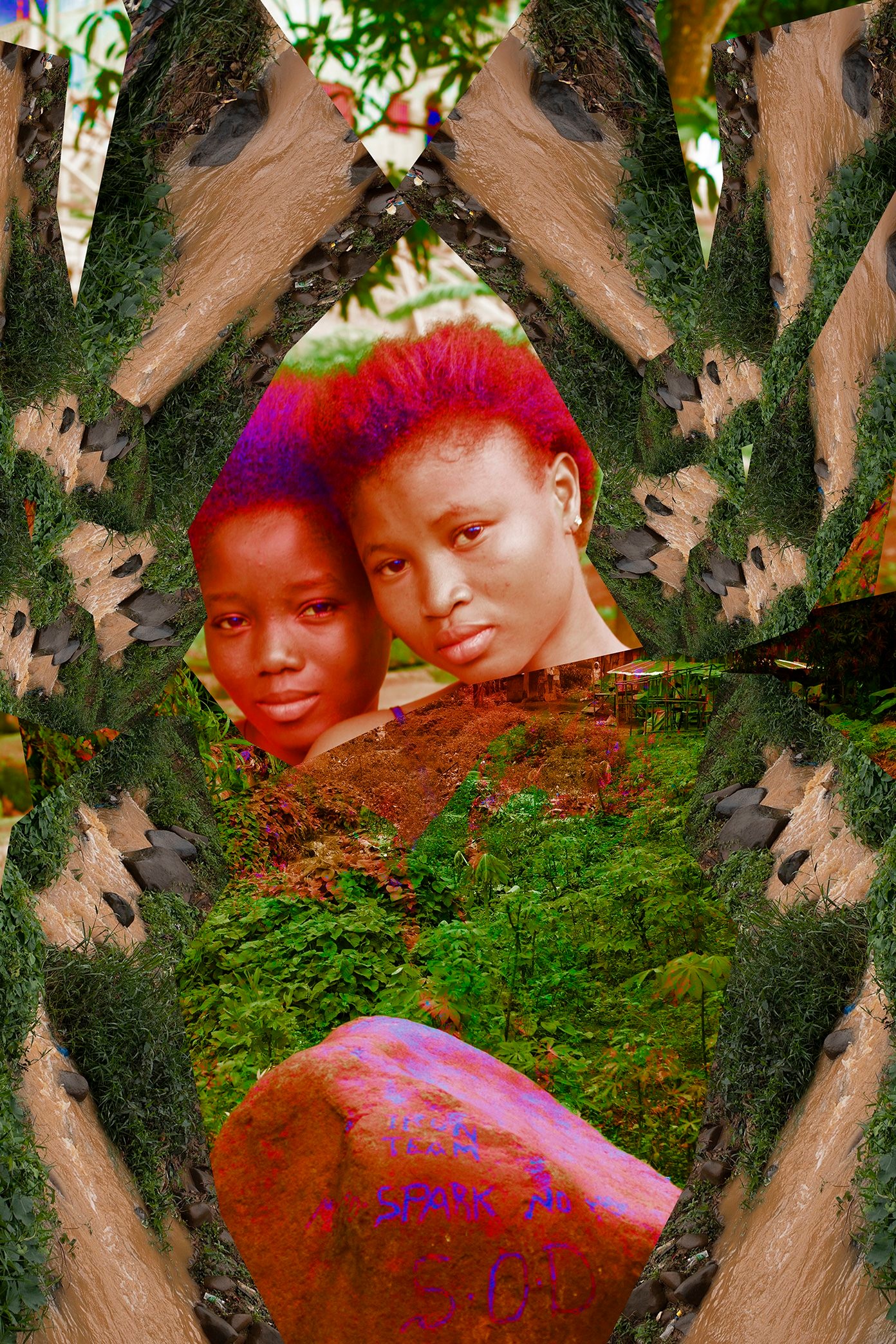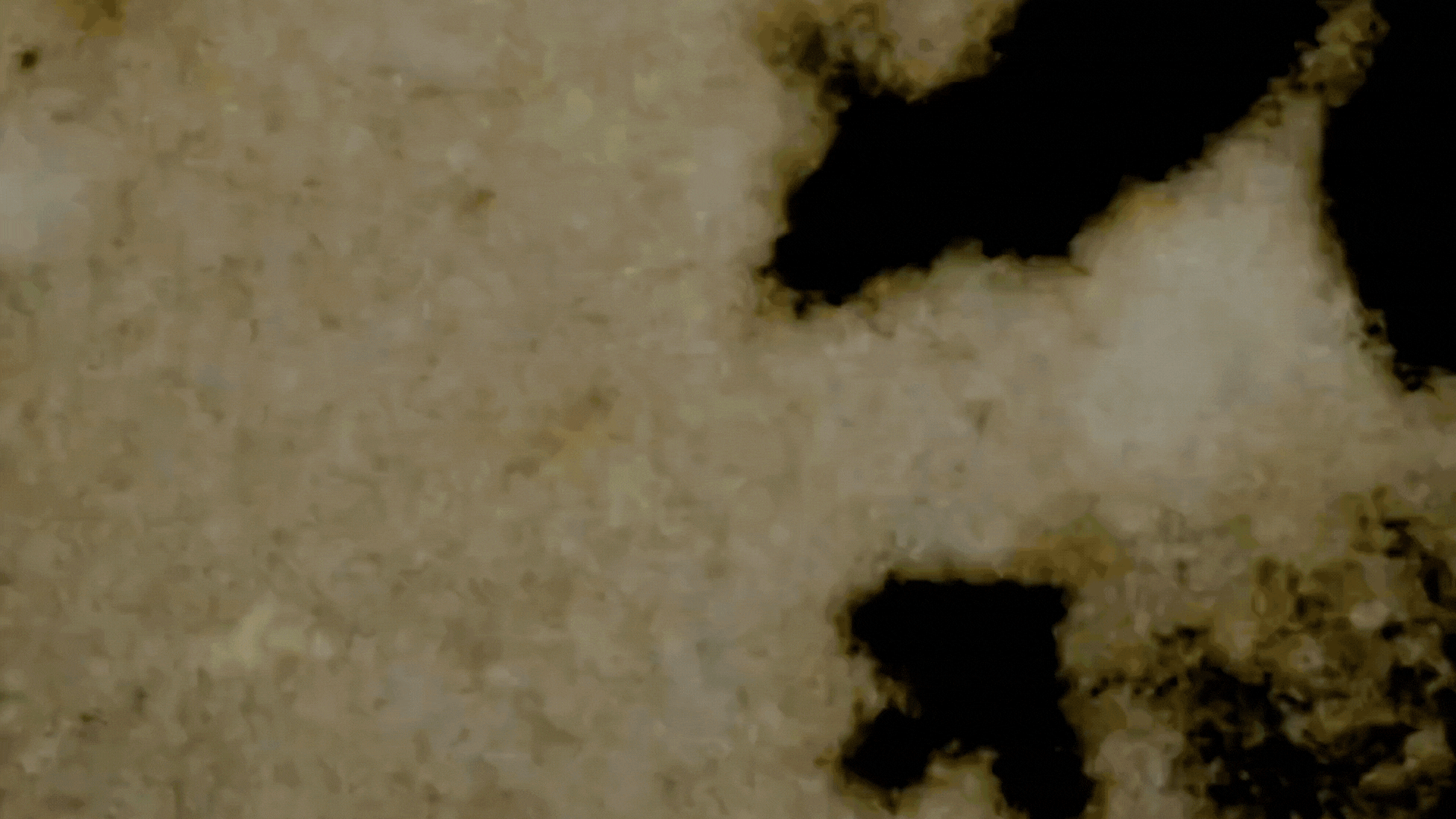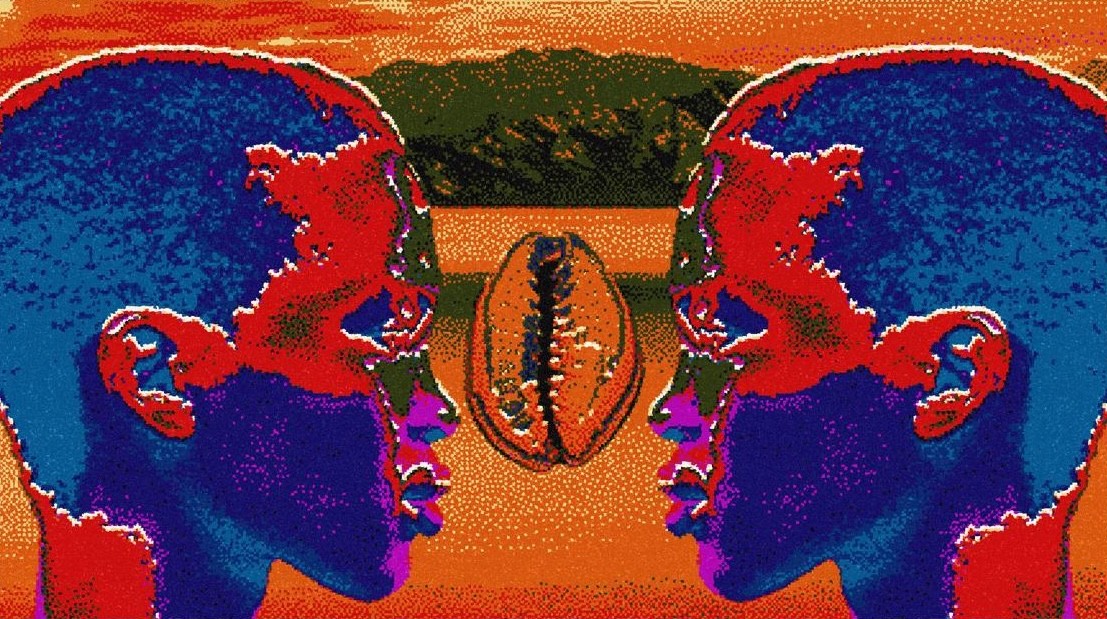Tarek Lakhrissi: Staging Melancholy, Finding Inspiration in Other People’s Words

Tarek Lakhrissi’s solo show Perfume of Traitors opened at VITRINE gallery in London in May. C& spoke with the Paris-based artist about creative support systems, refusal, weird narratives, and the idea of betrayal.
Contemporary And: Who is, or who isn’t, Tarek Lakhrissi?
Tarek Lakhrissi: That's a great question to start with. I think I'm not what you think I am. I would say I’m a combination of things that I'm still trying to figure out.
C&: William Noel Clarke, director of VITRINE gallery in London, told me you are working on a number of exhibitions. How do you cope with that abundance?
TL: Community work helps me cope. Especially in the artworld, there is an urgency to build communities, to have a support system to cope with a capitalist and liberal system. To collectively create with other cultural workers, artists, friends, or lovers. These people are the energy sources that can fuel the impossible. And of course, you find inspiration in other people’s stories and experiences. It's a beautiful challenge to find a balance in art and life as you work towards your own future. So I am investing a lot of energy in understanding how I can cope with the intensity and find a balance within myself.
[cand-gallery image-no=1]
C&: Do you say no to certain opportunities?
TL: That’s particularly hard when you first start. But it’s very important to create relationships of honesty, ethical environments, and transparency with the people you work with. It opens the door to hard conversations and intimacy. I feel that saying no to an opportunity also means that you are already in a good position because you have the choice. Choosing means control, privilege, and freedom. But we are not all in the same position. Specifically when you are a young artist, a woman, or a person of color, you learn to say yes a lot.
[cand-gallery image-no=2]
C&: I believe that your work reflects on those intangible relationships and power dynamics between people, communities, and societies. Generally there seems to be a shift taking place at the moment. How do you respond to that?
TL: In my film Diaspora/Situations (2017) I created a space to pay tribute to friendships, experiences, and conversations that I found transformative at the time. I'm trying to create awareness of the ways in which artists can work with institutions. That's why I'm also interested in how curators, creators, cultural workers, and directors are equal actors within processes of change.
I have been growing within my practice, and I have just recently learnt to say no to certain things. I never went to art school and I come from a working-class family that demands a lot of respect. So I had to learn how powerful and political it is to say no. Refusal can be the last tool to disrupt power dynamics, which is a hard thing to do. This is why I love teaching. I like to engage students in the idea that they are all artists, and to share what I’ve learned.
[cand-gallery image-no=3]
C&: Are you still exploring fiction, or are you more interested in documentary?
TL: I am currently more interested in fiction. Fiction is a powerful tool to reflect on things other than just identity, in a very fixed way. What I am not convinced about is all these conversation on identity politics – I am bored with them. Fiction provides far more disruptive, utopian, and weird narratives, which is why my film Out of the Blue (2019) is more influenced by fiction. To quote Audre Lorde: “we were not allowed to live in the future, we were not allowed to exist in the future.” So what does it mean to put our bodies in the future? As a kind of resistance to what some of us are assigned, such as violence or death.
I am also figuring out how words, a poem, a certain sentence I hear in the streets or I read in a book, are randomly changing my life. How these specific words can become a sculpture, an exhibition, and a film. That’s almost spiritual. We have mostly talked about films here, but I also work with sculpture, I publish books, I do performances, and I am increasingly more interested by music.
[cand-gallery image-no=4]
C&: Your exhibition at VITRINE in London is another iteration of your installation Unfinished Sentence(2019–20).
TL: Perfume of Traitors is very much interconnected with other projects I’ve worked on. Unfinished Sentence is based on Monique Wittig’s book Les Guérillères (1969). It is also connected to Sick Sad World (2021), which I showed at WIELS in Brussels, that focused on the TV show Daria and the intimate space of a teenager’s bedroom. Specifically the queer teenager of color whose bedroom becomes a space of self-preservation. There are also connections with Out of the Blue and its protagonists who are locked in a space where the only truth is bitter. To put it simply, every show is a new chapter of the same book staging a melancholic hero or a presence. I like to think about stories that have been told around that idea, hoping that the people who have access to it will build and create new stories from there and connect with the power of self-transformation.
The starting point for my show at VITRINE London, Perfume of Traitors, was the work of French writer Jean Genet, who was one of my first and most powerful political, aesthetic, and literary references. I think I was seventeen when I first read him. I was obsessed by him, his life, and his lies. How he created his own myths by lying and inventing stories about himself. He created this philosophy – which is quite controversial – that in order to be free, you have to betray; you have to be a traitor to be free. This is so inspiring, because there is something very honest and impure about it. It also reveals to me the importance of being unconventional and unapologetic. From there, I started to draw and create different blades to reveal the knife that is planted in your back. To destroy the weapon, I distorted this knife like I did in Unfinished Sentence, turning it into jewelry, and rendering it useless. The best way to betray a weapon is to turn it into jewelry [laughter]. This is the power of fiction that resonates with me right now. I love to think of these cultures as proofs, philosophies, and aesthetics that I believe in, that are about myself and which I can share with you.
[cand-gallery image-no=5]
C&: Which stories do you tell yourself, to keep you going?
TL: My current mantra is: “don't know, don't care” [laughter]. I don't know if it's because I'm an Aquarius, but I tend to easily distance myself from things and the world. I am always pragmatic in that sense. Don't know, don't care means that this doesn't belong to me, this is not my problem – when of course it is. This mantra is my way of drawing boundaries.
I'm also hearing voices of ghosts from the past, from my ancestors, from books or poetry that I read or read again, when l feel tired. This is also why I like music – it can be a very magical path to coping. Sometimes when you hear lyrics you think they are actually being spoken for you. This can help you understand a complicated situation. It can just come at random, but it is a sign from the universe to hear what [the French rapper] Booba, Björk, or Beyoncé [laughter] tells me – something that I should actually read, take care of, or respect. I like that. I think it's quite joyful and playful to understand a word or a sentence; to pay attention to signs, random thoughts that are meant to be visionary.
Ibrahim Cissé is a creative of Gambian heritage currently based in London. Anchored in storytelling, his work documents pockets of the private sphere and uses fictional narratives to formulate reflections and insights. Ibrahim works independently as a programme facilitator and editor.
In Conversation

The Deconstructive Lens of Ngadi Smart: From Drag to Climate Change

On Ghosts and The Moving Image: Edward George’s Black Atlas

On Exile, Amulets and Circadian Rhythms: Practising Data Healing across Timezones
In Conversation

The Deconstructive Lens of Ngadi Smart: From Drag to Climate Change

On Ghosts and The Moving Image: Edward George’s Black Atlas
